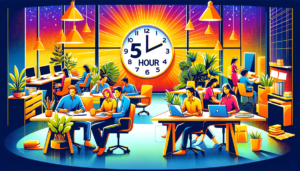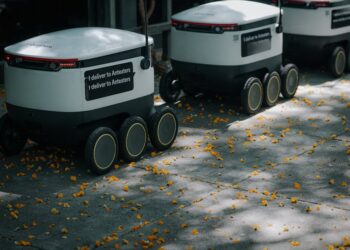No products in the cart.
Accenture’s Bold Move: Upskilling or Overhauling?
As Accenture pivots towards an AI-driven future, its decision to lay off employees unable to adapt underscores the critical importance of upskilling in today’s workforce.
Bengaluru, India — In a bold declaration that echoes through the tech corridors of the world, Accenture announced it will lay off employees who cannot adapt to artificial intelligence. This decision is more than a mere business strategy; it’s a clarion call for the workforce to embrace change.
Accenture, a global consulting giant, is positioning itself at the forefront of the AI revolution, a move that resonates deeply in the tech landscape where every click, every byte, is increasingly being driven by algorithms. The company’s commitment to upskilling its workforce is commendable, yet the ultimatum is stark: adapt or face the consequences.

This decision arrives at a time when the job market is in flux. The World Economic Forum recently reported that by 2025, 85 million jobs may be displaced due to shifts in labor between humans and machines, while 97 million new roles could emerge that are more adapted to the new division of labor between humans, machines, and algorithms. Accenture’s approach, therefore, seems to be a proactive response to this looming reality.
 Economics
EconomicsE.U. and South America Forge a New Trade Alliance
The E.U. and South America are set to form a free-trade zone, impacting 700 million people and reshaping global trade…
However, this strategy raises critical questions about the accessibility of upskilling opportunities. While Accenture commits to training its employees, the challenge remains: how do we ensure that all workers, especially those in lower-skilled roles, are not left behind? The disparity in access to quality training programs could exacerbate existing inequalities in the workforce.
With Accenture’s new emphasis on upskilling, she was given the opportunity to attend workshops and online courses.
Consider the story of Priya, a junior analyst at Accenture. She joined the company armed with a degree in business administration and a passion for data analysis. But as the company shifted its focus to AI-driven projects, Priya found herself grappling with new software and tools that seemed worlds apart from her traditional training. With Accenture’s new emphasis on upskilling, she was given the opportunity to attend workshops and online courses. Through dedication, Priya transformed her skill set and became a key player in a project that leveraged AI to optimize client solutions. Her journey illustrates the transformative power of upskilling, yet also highlights the stress and uncertainty faced by many employees in similar situations.
Accenture’s strategy is not without its critics. Skeptics argue that the pressure to adapt quickly can create a toxic culture where employees feel inadequate or overwhelmed. The risk of burnout is palpable in an environment where continuous learning is not just encouraged, but expected. A recent survey by Gallup found that 76% of employees feel that they are unprepared to utilize new technologies effectively, raising concerns about the feasibility of such a rapid shift.
Moreover, the focus on AI adaptation raises ethical questions. Will the push for upskilling prioritize certain skills over others, leading to a workforce that is proficient in AI but lacking in other essential areas like emotional intelligence and creative problem-solving? As we navigate this new terrain, it is imperative that companies like Accenture strike a balance between technological proficiency and the human skills that drive innovation.
 Featured
Featured5-Hour Workday: The Hourglass Reshaped
Discover the transformative potential of the 5-hour workday - a bold reimagining of traditional work practices that promises enhanced productivity,…
Read More →Looking forward, the question remains: how will companies like Accenture balance the dual imperatives of rapid technological adaptation and the well-being of their employees? As industries pivot towards AI, the demand for skilled workers will only intensify. Organizations must not only invest in technological advancements but also in the human capital that drives those advancements.
Employers should create a culture that fosters continuous learning and development, ensuring that all employees have access to resources that enable them to thrive in an AI-driven landscape. This might include mentorship programs, partnerships with educational institutions, and flexible learning opportunities that cater to diverse learning styles.
Will the push for upskilling prioritize certain skills over others, leading to a workforce that is proficient in AI but lacking in other essential areas like emotional intelligence and creative problem-solving?
As we move deeper into the age of AI, the key takeaway is clear: upskilling is not just a corporate responsibility; it is a shared journey. Workers, educators, and companies must collaborate to create a future where no one is left behind. The landscape of work is changing, and those who adapt will not only survive but thrive.










